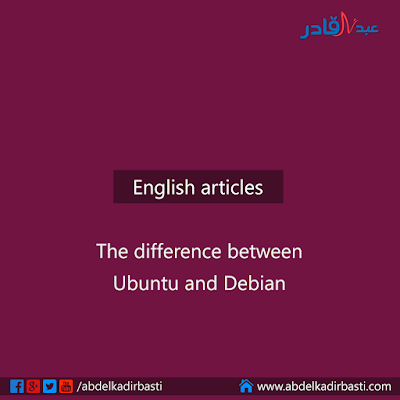Debian's one of the original Linux distributions (1993). In March 2004, a South African fellow (Mark Shuttleworth, founder of http://thawte.com) decided to build a more user-friendly version of Debian. He called it Ubuntu, and in late 2004, Ubuntu "Warty Warthog" was released, complete with a titillating CD jacket:
Ubuntu is a fork of Debian that's taken on its own life. Basically every six months, Ubuntu takes Debian's "unstable" (actually works pretty well) branch, does their own customization (which in terms of UI is considerable), and releases it.
Ubuntu has a new release every six months. Debian has a slightly different policy: they have three branches--stable, testing, and unstable. (I'm simplifying slightly here.) The unstable branch receives new packages as soon as they're uploaded. If you want the newest version of a package, Debian unstable is what you want. Debian testing is quite similar, except that there's a two-week grace period between when a package goes from unstable to testing. And most of the time, testing is where they stop - a new unstable version gets released, rolled into testing, and that's that. Every year or so, however, Debian will freeze the testing branch and prepare it to become the next stable release. Debian stable truly lives up to its word.
The difference in release cycle is really what distinguishes the two distros in my mind, but Ubuntu also takes a less stringent approach to non-free software (proprietary firmware, codecs, etc.)
I'm personally a Debian guy because of the rolling releases in the testing branch, but I often use Ubuntu at work. Given that Ubuntu Server is one of the stock images provided in Amazon Web Services, it behooves people to be familiar with it. Neither distro is going away anytime soon.
First of all, some features for both distros:
Debian:
- A bit more advanced and a bit more difficult to use (though still relatively easy)
- Uses free (as in freedom) software only
- More stable, based on their release cycles and thorough testing
- More lightweight compared to Ubuntu
Ubuntu:
- Great for beginners. Lots of tutorials online, easy to set up, all the applications you need are pre-installed, a large community to help you etc.
- Uses free (as in freedom) AND proprietary software. Depends on how you look at it, but this is considered as an advantage. It’s also worth noting that you can install proprietary software on Debian too.
- Needs better hardware. It’s not really lightweight.
General comparisons:
- Most applications work on both distros.
- You can install the same desktop environment on both distros (or use a different “Ubuntu” flavor like Xubuntu)
>> Also you can read: The difference between Ubuntu Desktop and Ubuntu Server
>> Also you can read: What should you do if you lost all your data in ubuntu





أضف تعليق:
0 comments: